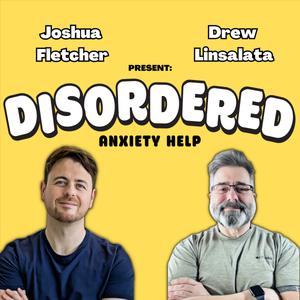
Disordered: Anxiety Help
Josh Fletcher and Drew Linsalata
Disordered is the podcast that delivers real, evidence-based, actionable talk about anxiety and anxiety and anxiety recovery in a kind, compassionate, community-oriented environment. Josh Fletcher is a qualified psychotherapist in the UK. Drew Linsalata is a therapist-in-training in the US. They're both bestselling authors in the anxiety and mental health space. Josh and Drew are funny, friendly, and they have a knack for combining lived experience, formal training, and professional experience in an encouraging, inspiring, and compassionate mental health message.
- 40 minutes 11 secondsMeasuring Anxiety Disorder Recovery (Episode 87)
How can you tell if you're getting better? How do you measure or at least see progress when working on recovery from an anxiety disorder? What happens if you're "doing it anyway" but not seeing progress?
This week on Disordered we're looking at the "green flags" of anxiety recovery. What are the signs that tell you that you're making progress even when you might feel like you're not? How much of recovery is found in just doing it anyway? What if you're already doing it anyway and don't feel like you're making progress?
Josh and Drew are answering some of these questions with reminders about the real targets of recovery, shifting attitudes, willingness to come into contact with difficult internal experiences, and steering clear of Craig the Critic when he insists that you're doing it all wrong and never getting better.
---
Disordered Roundtables are here. Think of it as "Disordered Live", a way for members of our audience to spend time with us in an intimate virtual setting (attendance is limited) to engage in real time sharing and discussion on specific anxiety disorder and recovery topics. To be notified when new Disordered Roundtable sessions are scheduled, visit our homepage and get on our mailing list.
---
Struggling with worry and rumination that you feel you can't stop or control? Check out Worry and Rumination Explained, a two hour pre-recorded workshop produced by Josh and Drew. The workshop takes a deep dive into the mechanics of worrying and ruminating, offering some helpful ways to approach the seemingly unsolvable problem of trying to solve seemingly unsolveable problems.
https://bit.ly/worryrumination
-----
Want to ask us questions, share your wins, or get more information about Josh, Drew, and the Disordered podcast?
22 November 2024, 8:15 am - 46 minutes 9 secondsAnxiety, Caffeine, Alcohol, and Cheeseburgers (Episode 86)
Do you have to give up coffee, tea, wine, pizza and cake to recover from an anxiety disorder? Well ... if you ask the Internet and consult general wellness influencers this question you're going to get answers that tend to collide with best practices among well trained therapists and counselors.
No, you do not have to give up your favorite foods and drinks to get better. You may choose to structure your diet and your lifestyle around making overall healthy choices that align with your values and belief. That's always a good thing.
But if you are avoiding things you generally like or enjoy in an effort to micro-manage your body or totally avoid experiencing natural thoughts, emotions, and sensations because you fear them ... this episode of Disordered is for you. It is in fact possible to fully recover from your anxiety disorder while also eating cheeseburgers and drinking wine. These things are not mutually exclusive!
---
Disordered Roundtables are here. Think of it as "Disordered Live", a way for members of our audience to spend time with us in an intimate virtual setting (attendance is limited) to engage in real time sharing and discussion on specific anxiety disorder and recovery topics. To be notified when new Disordered Roundtable sessions are scheduled, visit our homepage and get on our mailing list.
---
Struggling with worry and rumination that you feel you can't stop or control? Check out Worry and Rumination Explained, a two hour pre-recorded workshop produced by Josh and Drew. The workshop takes a deep dive into the mechanics of worrying and ruminating, offering some helpful ways to approach the seemingly unsolvable problem of trying to solve seemingly unsolveable problems.
https://bit.ly/worryrumination
-----
Want to ask us questions, share your wins, or get more information about Josh, Drew, and the Disordered podcast?
15 November 2024, 8:15 am - 45 minutes 51 secondsObsessive and Compulsive? (Episode 85)
This week on Disordered we're starting with the assertion that all anxiety disorders are obsessive and compulsive in at least some way. Then we make our way through all the "usual suspects"
- Panic disorder
- Health anxiety
- Social anxiety
- GAD
- OCD (obviously)
We're looking at the obsessional components of each anxiety flavor, and the corresponding common compulsions or rituals designed to easy anxiety and discomfort.
If you're worried because you think you have one type of anxiety ... and also OCD ... don't worry. While the usual "we're all a little OCD" thing is really awful and should be banned forever, within the context of anxiety disorders there are always obsessive and compulsive tendencies at play.
Also, shout out to selective mutism, which is officially an anxiety disorder according to the DSM-5 but has never been mentioned on this podcast before. Spoiler alert: neither Drew nor Josh had anything constructive to say in that moment because neither has any experience with that presentation. Sorry, selective mutism.
---
Disordered Roundtables are here. Think of it as "Disordered Live", a way for members of our audience to spend time with us in an intimate virtual setting (attendance is limited) to engage in real time sharing and discussion on specific anxiety disorder and recovery topics. To be notified when new Disordered Roundtable sessions are scheduled, visit our homepage and get on our mailing list.
---
Struggling with worry and rumination that you feel you can't stop or control? Check out Worry and Rumination Explained, a two hour pre-recorded workshop produced by Josh and Drew. The workshop takes a deep dive into the mechanics of worrying and ruminating, offering some helpful ways to approach the seemingly unsolvable problem of trying to solve seemingly unsolveable problems.
https://bit.ly/worryrumination
-----
Want to ask us questions, share your wins, or get more information about Josh, Drew, and the Disordered podcast?
8 November 2024, 8:15 am - 40 minutes 3 secondsListener Questions About Anxiety and Recovery (Episode 84)
This week Josh and Drew are answering questions from Disordered listeners.
- How to deal with the shame associated with anxiety and recovery when a partner or spouse isn't terribly supportive.
- How do re-gain confidence in oneself?
- What happens if you don't remember what non-anxious you was like?
- What about flushing, feeling hot, and getting goosebumps when anxious?
- I'm an introvert. What do I do when I want to go home to re-charge? Is that avoidance?
- What about when you're facing possible medical issues and it triggers anxiety?
- What about anxiety symptoms that are disruptive and I don't know how to manage them or stop them? What is that? If its a panic attack, how do I stop it?
As always, this episode includes some wins from the community, and healthy helpings of humor and compassion.
---
Disordered Roundtables are here. Think of it as "Disordered Live", a way for members of our audience to spend time with us in an intimate virtual setting (attendance is limited) to engage in real time sharing and discussion on specific anxiety disorder and recovery topics. To be notified when new Disordered Roundtable sessions are scheduled, visit our homepage and get on our mailing list.
---
Struggling with worry and rumination that you feel you can't stop or control? Check out Worry and Rumination Explained, a two hour pre-recorded workshop produced by Josh and Drew. The workshop takes a deep dive into the mechanics of worrying and ruminating, offering some helpful ways to approach the seemingly unsolvable problem of trying to solve seemingly unsolveable problems.
https://bit.ly/worryrumination
-----
Want to ask us questions, share your wins, or get more information about Josh, Drew, and the Disordered podcast?
1 November 2024, 7:15 am - 39 minutes 40 secondsAnxiety Disorders - Primary vs Secondary Fear (Episode 83)
This week Drew and Josh are talking about secondary fear.
When triggered into an anxious state by thoughts, sensations, or anything else, we ALL experience a jolt of fear or discomfort. This is primary fear and its simply part of being human. Overcoming an anxiety disorder is not about removing this natural, healthy response to possible threats. People struggling with anxiety disorders will often make the mistake of trying to turn off the primary fear response to feel better.
But if you want to overcome disordered and chronic states of anxiety, you want to work on turning down the secondary fear response. This is the response that makes you afraid ... or being afraid. Secondary fear is what we call it when you misinterpret primary fear as itself dangerous and begin to take evasive action to get away from, manage, stop, or prevent this internal experience. Secondary fear - and acting to keep secondary fear alive - is what really drives the disordered state.
Tune in to hear a discussion about how to play charades with your amygdala and how to respond to its "call to perform" in a way that lets you slowly turn down that secondary fear response bit by bit over time. As usual, we're adding some humor and a dose of patience and kindness as is needed in any process that involves doing scary, difficult things on purpose.
---
Disordered Roundtables are here. Think of it as "Disordered Live", a way for members of our audience to spend time with us in an intimate virtual setting (attendance is limited) to engage in real time sharing and discussion on specific anxiety disorder and recovery topics. To be notified when new Disordered Roundtable sessions are scheduled, visit our homepage and get on our mailing list.
---
Struggling with worry and rumination that you feel you can't stop or control? Check out Worry and Rumination Explained, a two hour pre-recorded workshop produced by Josh and Drew. The workshop takes a deep dive into the mechanics of worrying and ruminating, offering some helpful ways to approach the seemingly unsolvable problem of trying to solve seemingly unsolveable problems.
https://bit.ly/worryrumination
-----
Want to ask us questions, share your wins, or get more information about Josh, Drew, and the Disordered podcast?
25 October 2024, 7:15 am - 43 minutes 31 secondsWHY Did I Develop An Anxiety Disorder? (Episode 82)
Everyone that develops an anxiety disorder wants to know why that happened. Why do some people develop disorders while others are anxious and stressed all the time without ever developing a disorder issue?
Excellent question, and one that nobody would blame you for asking.
This week on Disordered we're exploring the origins of anxiety disorders, why they develop, what makes us more vulnerable to this, why symptoms and scary thoughts happen, and the relationship between stress (inevitable in life) and disordered anxiety.
We're also looking at how there can be many contributing factors that might trigger development of an anxiety disorder, but paradoxically directly addressing those factors is not usually the way to get out of the state you find yourself in. First we "turn off the tap" (tune in for more on this) and learn to stand up on our own, then addressing contributing factors and working on overall wellness and good relapse prevention strategies and skills can - and often do - become part of the plan.
---
Disordered Roundtables are here. Think of it as "Disordered Live", a way for members of our audience to spend time with us in an intimate virtual setting (attendance is limited) to engage in real time sharing and discussion on specific anxiety disorder and recovery topics. To be notified when new Disordered Roundtable sessions are scheduled, visit our homepage and get on our mailing list.
---
Struggling with worry and rumination that you feel you can't stop or control? Check out Worry and Rumination Explained, a two hour pre-recorded workshop produced by Josh and Drew. The workshop takes a deep dive into the mechanics of worrying and ruminating, offering some helpful ways to approach the seemingly unsolvable problem of trying to solve seemingly unsolveable problems.
https://bit.ly/worryrumination
-----
Want to ask us questions, share your wins, or get more information about Josh, Drew, and the Disordered podcast?
18 October 2024, 7:15 am - 44 minutes 16 secondsLearning To Be Bored in Anxiety Recovery (Episode 81)
Anxious people in recovery from chronic or disordered anxiety can find themselves bored ... and this is often a problem. This week on Disordered we're talking about learning to be bored. Yes, we have to learn how to be bored, which can be challenging if anxiety is a problem for you, but this is a skill well worth learning and practicing.
Allowing yourself to sit quietly or to engage in random activities that may or may not have any purpose at all is a real thing. Not everything needs to be analyzed and evaluated in the context of anxiety recovery. Its perfectly OK to "not recover" for a while and to allow yourself to be bored, or idle. Might you experience thoughts or even sensations that you still fear a little? Yes! But this is normal. Bring those things with you into your boredom. Don't be tricked into thinking that idle time or boredom are dangerous or damaging in some way.
Of note in this episode is a discussion of how reclaiming boredom and idle time without engaging in constant movement, distraction, or consumption of content is a good idea for ALL humans, not just anxious people.
If you're finding yourself bored, or with idle time on your hands, this can be a good sign in your recovery. But if you find this disturbing - if boredom is itself anxiety producing - this episode may prove helpful. Give it a listen.
---
Disordered Roundtable is coming! Think of it as "Disordered Live", a way for members of our audience to spend time with us in an intimate virtual setting (attendance is limited) to engage in real time sharing and discussion on specific anxiety disorder and recovery topics. To be notified when new Disordered Roundtable sessions are scheduled, visit our homepage and get on our mailing list.
---
Struggling with worry and rumination that you feel you can't stop or control? Check out Worry and Rumination Explained, a two hour pre-recorded workshop produced by Josh and Drew. The workshop takes a deep dive into the mechanics of worrying and ruminating, offering some helpful ways to approach the seemingly unsolvable problem of trying to solve seemingly unsolveable problems.
https://bit.ly/worryrumination
-----
Want to ask us questions, share your wins, or get more information about Josh, Drew, and the Disordered podcast?
Visit us on the web at https://disordered.fm
11 October 2024, 7:15 am - 43 minutes 21 secondsDating With an Anxiety Disorder (Episode 80)
"I want to get back into dating but I'm still struggling with anxiety. What should I do?"
"It's been going well with this new person and I'm afraid to tell them about my anxiety problem. Any tips?"
"Do I need to recover fully before I start dating again?"
"What if I start to like this person then then drop me because of my anxiety?"
This week on Disordered we're examining the topic of dating ... with an anxiety disorder. Life doesn't stop because you are struggling with panic disorder or OCD or some other form of chronic or disordered anxiety. Anxious people also value connection, companionship, and intimacy. So how can you approach dating and building new intimate relationships while you're still in the thick of an anxiety problem and/or working on recovery?
Two guys that know very little about dating ... but a whole lot about anxiety disorders ... are here to provide some insight on what it might look like when dating and anxiety disorders collide. The usual "rules" will still apply in this context, but we're also looking at sources of shame or negative self-image outside of anxiety, cognitive distortions and catastrophic thinking that can sabotage dating and new relationships, and why even non-anxious people struggle when looking for romantic partners.
---
Disordered Roundtable is coming! Think of it as "Disordered Live", a way for members of our audience to spend time with us in an intimate virtual setting (attendance is limited) to engage in real time sharing and discussion on specific anxiety disorder and recovery topics. To be notified when new Disordered Roundtable sessions are scheduled, visit our homepage and get on our mailing list.
---
Struggling with worry and rumination that you feel you can't stop or control? Check out Worry and Rumination Explained, a two hour pre-recorded workshop produced by Josh and Drew. The workshop takes a deep dive into the mechanics of worrying and ruminating, offering some helpful ways to approach the seemingly unsolvable problem of trying to solve seemingly unsolveable problems.
https://bit.ly/worryrumination
-----
Want to ask us questions, share your wins, or get more information about Josh, Drew, and the Disordered podcast?
Visit us on the web at https://disordered.fm
4 October 2024, 7:10 am - 43 minutes 52 secondsWhat's YOUR Anxiety Narrative (Episode 79)
Your anxiety narrative is the way you conceptualize your anxiety issues alongside how you see yourself, the world, your life in general, and how you may think your anxiety disorder developed or was triggered. Your personal narrative is important because nobody knows more about you than you!
When seeking help with an anxiety problem, your narrative is the place a good helper will start. Helpers do not get to tell you your own story or impose their stories upon you. They should start with your conceptualization - your narrative - and work to incorporate that into the theories or modalities they use that work best in the context of your primary issue.
This week Josh and Drew will explore why there is often confusion, conflict, and even debate about anxiety related narratives and how sometimes it can be difficult to conceptualize your own story when bombarded with so many varying messages on busy social platforms.
In the end, you are always the expert on you. Taking time to work out your anxiety narrative, including how it may change as you go through the recovery process, is a process well worth engaging in. Just remember that this can be unclear, confusing, or even frustrating at times so beware of the perfection of "doing it right" traps. Your anxiety narrative is organic. It lives and breathes and changes and that's OK. There is no wrong way to address your own story!
---
Disordered Roundtable is coming! Think of it as "Disordered Live", a way for members of our audience to spend time with us in an intimate virtual setting (attendance is limited) to engage in real time sharing and discussion on specific anxiety disorder and recovery topics. To be notified when new Disordered Roundtable sessions are scheduled, visit our homepage and get on our mailing list.
---
Struggling with worry and rumination that you feel you can't stop or control? Check out Worry and Rumination Explained, a two hour pre-recorded workshop produced by Josh and Drew. The workshop takes a deep dive into the mechanics of worrying and ruminating, offering some helpful ways to approach the seemingly unsolvable problem of trying to solve seemingly unsolveable problems.
https://bit.ly/worryrumination
-----
Want to ask us questions, share your wins, or get more information about Josh, Drew, and the Disordered podcast?
Visit us on the web at https://disordered.fm
27 September 2024, 7:15 am - 42 minutes 37 secondsAnxiety Disorders: Shock, Attention, and Resistance (Episode 78)
Three things start and drive disordered states of anxiety:
Shock, Attention, and Resistance
- Shock is what we experience when anxiety levels skyrocket for what seems like no reason. We experience scary and disturbing physical sensations, thoughts, and emotions all at the same time. It is ... shocking!
- Attention drives disordered anxiety when our internal states become the most important and interesting thing in the room all the time. We focus all our attention on how we feel all the time and cannot even imagine doing otherwise.
- Resistance drives disordered anxiety when we fight our reality. We are anxious. We have symptoms. We have scary thoughts. We feel emotions. This is our reality in any given moment. We wear ourselves down, increase our sense of powerlessness and hopelessness, get more and more confused, and feel more and more lost and out of control when we resist this reality and try to control it rather than working WITH it.
This week on Disordered we're looking at the Shock / Attention / Resistance cycle that ignites and maintains a disordered state of anxiety.
---
Disordered Roundtable is coming! Think of it as "Disordered Live", a way for members of our audience to spend time with us in an intimate virtual setting (attendance is limited) to engage in real time sharing and discussion on specific anxiety disorder and recovery topics. To be notified when new Disordered Roundtable sessions are scheduled, visit our homepage and get on our mailing list.
---
Struggling with worry and rumination that you feel you can't stop or control? Check out Worry and Rumination Explained, a two hour pre-recorded workshop produced by Josh and Drew. The workshop takes a deep dive into the mechanics of worrying and ruminating, offering some helpful ways to approach the seemingly unsolvable problem of trying to solve seemingly unsolveable problems.
https://bit.ly/worryrumination
-----
Want to ask us questions, share your wins, or get more information about Josh, Drew, and the Disordered podcast?
Visit us on the web at https://disordered.fm
20 September 2024, 7:15 am - 37 minutes 40 secondsHealth Anxiety and Somatic Hyper Focus (Episode 77)
Somatic Hyper Focus - That thing where an anxious person becomes hyper aware and hyper fixated on specific bodily sensations or bodily functions. This is a common issue seen in health anxiety, OCD, and panic disorder.
This week Drew and Josh are going into detail on somatic hyper focus. What does it look like? How do anxious people get stuck in this loop? What are the mechanisms at play? What tricks does the anxious mind (our friend the amygdala) employ to get us to remain focused and convinced that closely monitoring our bodies is a good idea?
We're talking about hyper focus on heartbeat, breathing, muscle twitches, stomach sensations, aches and pains, and a slew of other common somatic fixation targets. We're also talking about a way to conceptualize this issue that might help you turn away from it and learn through behavioral change and experience that its OK to not urgently analyze the results every time your frightened mind scans your body for signs of danger.
Of course, there's the usual dose of humor and silly music and sound effects to round out the discussion, along with a reminder that overcoming somatic hyper focus takes time and requires patience and self-compassion. Nobody fixes this problem overnight, so tune in, take what you can from this episode, and be nice to yourself as you address this disruptive and unwanted habit.
---
Disordered Roundtable is coming! Think of it as "Disordered Live", a way for members of our audience to spend time with us in an intimate virtual setting (attendance is limited) to engage in real time sharing and discussion on specific anxiety disorder and recovery topics. To be notified when new Disordered Roundtable sessions are scheduled, visit our homepage and get on our mailing list.
---
Struggling with worry and rumination that you feel you can't stop or control? Check out Worry and Rumination Explained, a two hour pre-recorded workshop produced by Josh and Drew. The workshop takes a deep dive into the mechanics of worrying and ruminating, offering some helpful ways to approach the seemingly unsolvable problem of trying to solve seemingly unsolveable problems.
https://bit.ly/worryrumination
-----
Want to ask us questions, share your wins, or get more information about Josh, Drew, and the Disordered podcast?
Visit us on the web at https://disordered.fm
13 September 2024, 7:10 am - More Episodes? Get the App
- https://disordered.fm
- en-us
Your feedback is valuable to us. Should you encounter any bugs, glitches, lack of functionality or other problems, please email us on [email protected] or join Moon.FM Telegram Group where you can talk directly to the dev team who are happy to answer any queries.
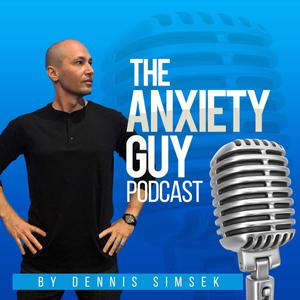 The Anxiety Guy Podcast
The Anxiety Guy Podcast
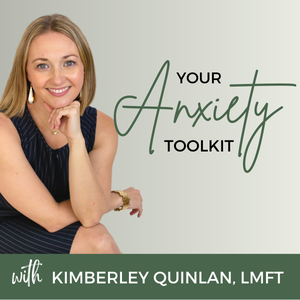 Your Anxiety Toolkit - Anxiety & OCD Strategies for Everyday
Your Anxiety Toolkit - Anxiety & OCD Strategies for Everyday
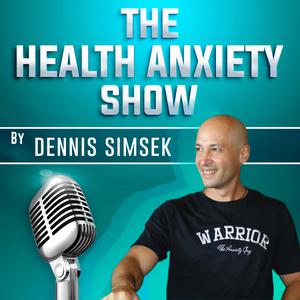 Health Anxiety Podcast Show
Health Anxiety Podcast Show
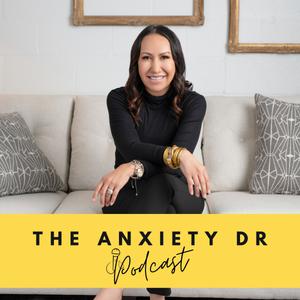 The Anxiety Dr. Podcast
The Anxiety Dr. Podcast
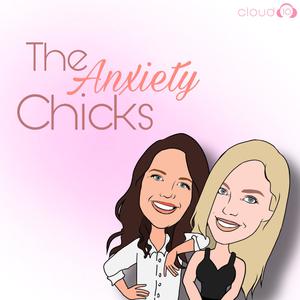 The Anxiety Chicks
The Anxiety Chicks
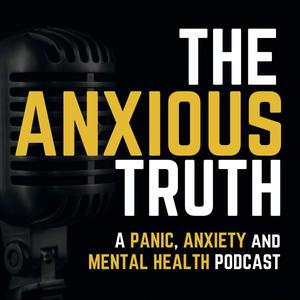 The Anxious Truth - A Panic, Anxiety, and Mental Health Podcast
The Anxious Truth - A Panic, Anxiety, and Mental Health Podcast